How do you hold a strike on a North Sea oil platform?
- Published
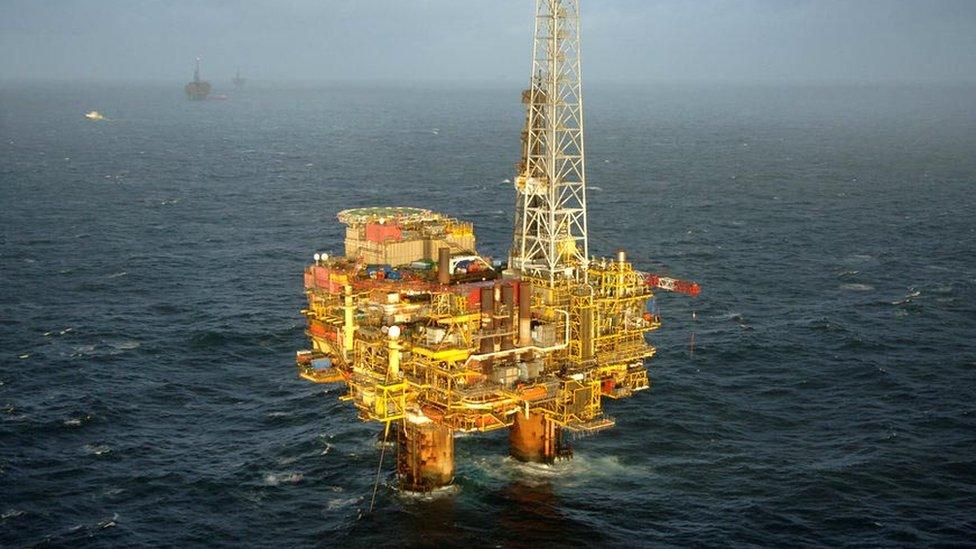
Brent Bravo is one of the platforms involved
Hundreds of North Sea oil and gas workers are staging a "unique" 24-hour strike in a dispute over pay, but what form will that actually take when you are in the middle of the sea?

Hundreds of RMT and Unite union members who work for Wood Group are staging the 24-hour industrial action on Tuesday in a dispute over pay.
It is the first industrial action of its kind in the offshore oil and gas industry in almost 30 years.
But how do you actually conduct a strike on a North Sea oil platform?
Those union members involved on the seven Shell platforms will go to designated areas - but will respond should there be an emergency situation.
There will not be the traditional high-profile picket lines that people associate with strikes on land.
In February, Wood Group announced it was cutting rates paid to about a third of its UK contractor workforce.
It blamed the "continuing cost and efficiency challenges affecting the UK North Sea oil and gas sector".
The unions claim workers could suffer a cut to their pay and allowances of up to 30% - but that has been dismissed by Wood Group.
Workers are also disgruntled that a two-week working cycle has been changed to a three-week cycle, leaving many away from their families for a longer time.
An overtime ban came into effect on Monday ahead of the planned Tuesday strike. It was expected to go ahead as there were no fresh talks on Monday.
Is there a picket line?
RMT regional organiser Jake Molloy told the BBC Scotland news website: "Striking on an offshore installation is a unique exercise which has no comparison with any other industrial sector.
"There's no collective grouping in the form of mass meetings, no 'march through the gates' or establishing a picket line, and there's no place and little point to waving flags or displaying placards - as there's nobody there to see them.
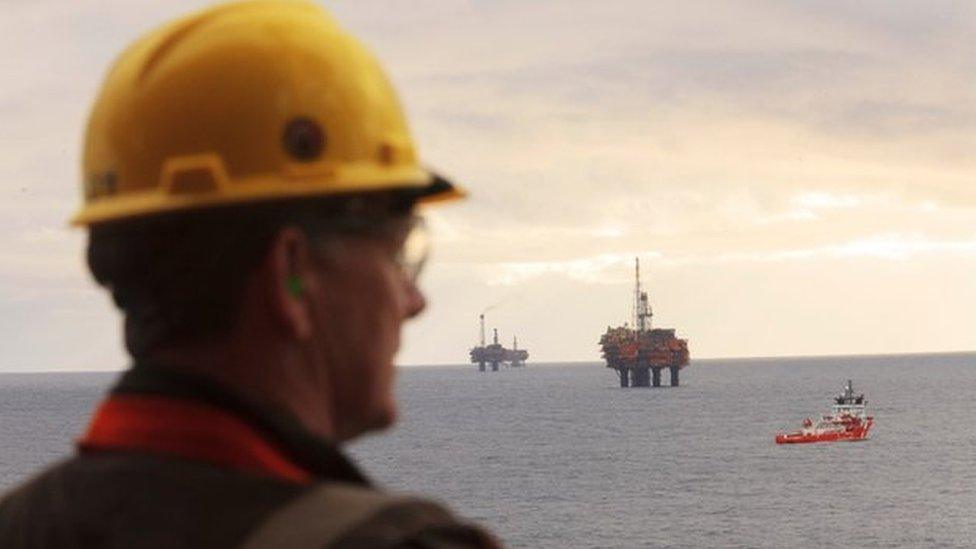
Workers on seven Shell platforms will be involved with the strike action
"Instead of turning out to work at 6:30 tomorrow morning workers will turn out to gather in an assigned area on the platform, probably a games room, cinema or meeting room.
"This room and any other assigned will be their area for the duration of their work period, 12 hours, after which they can return to their cabins.
"I expect they will have organised activities to get them through the day as they know it is a long day when you're not working."
What will the strikers be doing?
Mr Molloy said the strikers would be passing the time with card games and quizzes, plus reading the messages of support from across the North Sea and beyond.
But he recognised that it could be difficult for those not involved in the dispute who are continuing to work.
Nevertheless, Mr Molloy hoped there would be "good banter and camaraderie" amongst the workforce as a whole.
He believed it took great courage to get involved in any form of industrial action offshore.
Mr Molloy explained: "This is an unforgiving industry with a seriously bad record when it comes to any form of workforce challenge, these workers are to be applauded for their strength, spirit and principles."
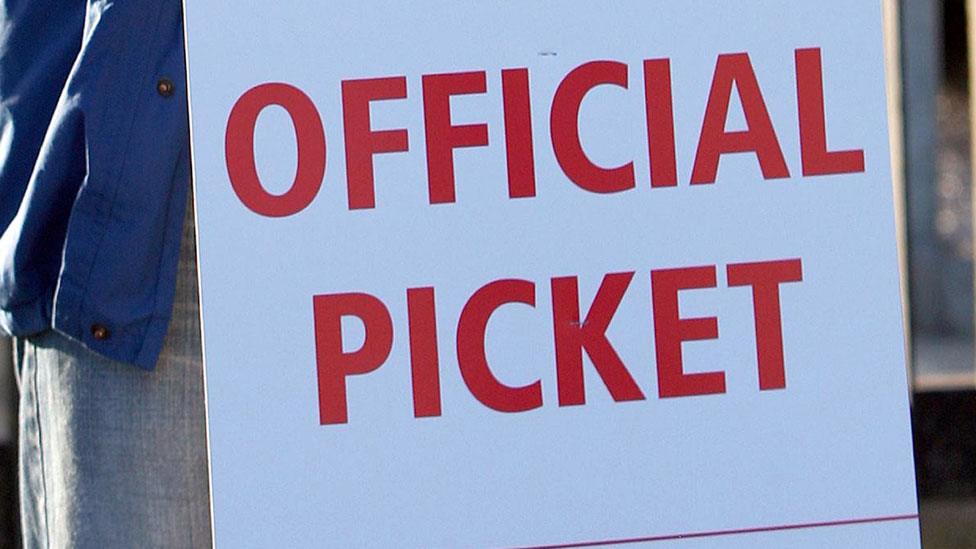
The oil platform workers will not be displaying official picket signs
Unite regional officer John Boland echoed the words of the RMT regional organiser, saying strike action was not a decision taken lightly.
He added: "There have been ongoing discussions between our shop stewards and the management on the actual platforms.
"It's been arranged [there will be] designated areas where our members will go while they are taking industrial action.
"Obviously this is a safety issue as well, so they are in areas which are safe for them.
"But also we have said to Shell and Wood Group that in the case of an unforeseen emergency happening then any of our members who are members of emergency response teams will respond.
"They are in an area where they can be contacted if necessary."
What's the view of the bosses?
Oil services firm Wood Group said it was "extremely disappointed" by the decision to take strike action.
Dave Stewart, chief executive officer for Wood Group's eastern region business unit, said: "Our employees' safety and wellbeing remains our top priority and our commitment is to ensuring it is not compromised during industrial action.
"Although we are extremely disappointed that industrial action will be taken, we respect the right of those employees who choose to do so.
"Our firm focus remains on reaching a resolution, which meets our mutual goal of sustaining these jobs for our employees in the North Sea now and in the future, against the backdrop of an extremely challenging climate created by the sustained low oil price.
"We are continuing to engage frequently, proactively and openly with our employees and the unions. We met with union representatives on Friday and senior management have visited impacted installations over the weekend to talk with our people, with the clear aim of positively progressing discussions towards reaching a resolution."
A Shell spokesman said: "This action is highly regrettable. Shell's priority is to ensure the safety of our workforce and assets and we will not compromise on safety during this period of industrial action.
"While we recognise the right of Wood Group's employees to strike, it is clear that in order for the North Sea oil and gas industry to remain competitive in the lower oil price environment, structural change is needed.
"We hope that Wood Group's employees and management will continue working towards reaching a solution which will halt this counter-productive industrial action."
Wood Group provides maintenance and construction services to the installations, having signed a new three-year contract extension with Shell earlier this year.
The seven Shell platforms involved are Shearwater, Gannet, Nelson, Curlew, Brent Alpha, Brent Bravo and Brent Charlie.
- Published22 July 2016
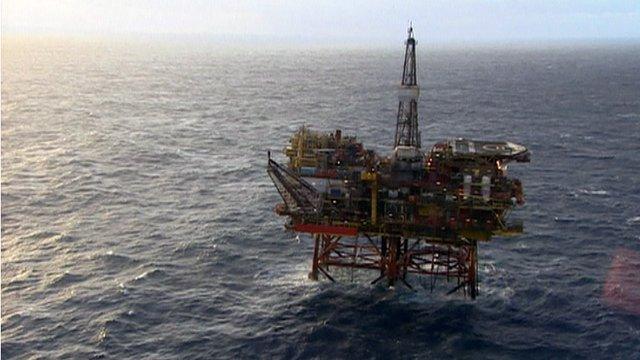
- Published20 July 2016

- Published18 July 2016

- Published13 July 2016

- Published24 April 2016
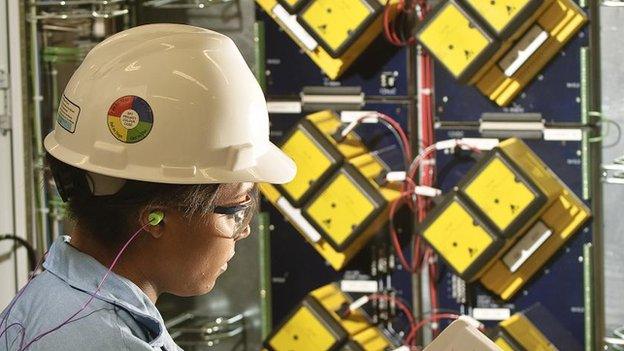
- Published19 February 2016
